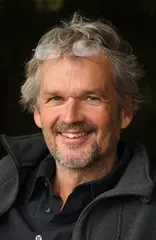With the participation of specialists in Arabic studies, theologians, philologists and philosophers, an international research group was founded in November 2010 at the Gotha Research Centre to study the early history of Oriental studies, i.e. the study of the cultures of the Middle East.
Even before the establishment of separate chairs in the late 18th century, there was an early scholarly interest in Oriental culture. Mostly it was theologians who, in search of a particularly meticulous understanding of the Bible, began their own research. Thus, in the 17th and early 18th centuries, a rich, so far hardly acknowledged literature emerged. Scholars from England, Israel and Switzerland have joined forces to cut ‘first tracks’ into this so far hardly explored field of disputations, encyclopaedias, book editions or antiquarian studies. Under the leadership of Martin Mulsow, four other scholars have been involved so far: Bernd Roling (FU Berlin), Jan Loop (Warburg Institute London), Dietrich Klein (Munich) and Asaph Ben-Tov.
In addition to regular working meetings and the preparation of conferences, the joint indexing of outstanding Orientalists of the early modern period will be the focus of the work. As its first task, the network is devoting itself to the extensive work of the Helmstedt Orientalist Hermann von der Hardt (1660–1746), who published over 150 writings – including secret writings and, according to Mulsow, "an early form of comic strip that the professor sent to his duke when his books were confiscated."
With the founding of the Early Modern Oriental Studies Network, the Gotha Research Centre is further expanding its research profile.
![[Translate to English:] Schnitt orientalischer Handschriften](/fileadmin/_processed_/4/e/csm_Schnitt_orientalischer_Handschriften_3b38d390c3.webp)

